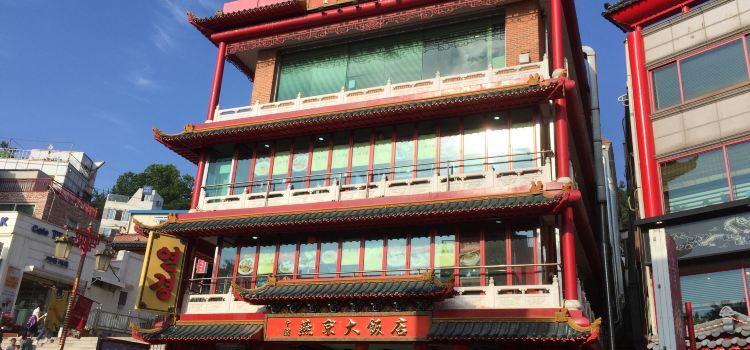China Seong
4.7/535 Reviews
Incheon City€14

Currently closed|Open tomorrow at 10:00
0327621677
What travelers say:

There are many restaurants in Incheon China Town, most of which serve Chinese food, including snacks and local flavors from various places. They all write the names of the food in Chinese characters. It really looks like deja vu.
More
Reviews of China Seong
Some reviews may have been translated by Google Translate
4.7/5Outstanding
All (35)
Latest
Photo reviews (1)
Positive reviews (3)
There are many restaurants in Incheon China Town, most of which serve Chinese food, including snacks and local flavors from various places. They all write the names of the food in Chinese characters. It really looks like deja vu.
I discovered this place by chance when I was walking around Chinatown. It was quite delicious, and the dishes looked and tasted almost the same as what I had in China. It was very satisfying, and the two of us tried several dishes.
In fact, I think the food in Chinatown here is not particularly delicious, and it is very expensive. However, there are some Cantonese-style dim sum and snacks that I think are worth trying. They are not too expensive, and some of them are very authentic.
There are many Koreans walking around, there are many snacks, and there are many shops run by chefs who have participated in talent shows, there are big hotels and small roadside snack stalls. Such snack stalls often have long queues. Among them, "Wandafu" is a century-old Korean brand that specializes in jajangmyeon. You can try it.
There are still many Chinese restaurants. The most famous one is Yanjing Restaurant. There are several branches. The taste is good and it is also quite clean. The taste is more suitable for people from China. It has a taste of home. I recommend it.
Incheon's Chinatown is not particularly large. You can eat quite a few good Chinese restaurants here. The prices are quite expensive, with the average price of a dish being around 40 yuan. There are quite a few types of Sichuan cuisine.
That's it. You can see many museums and learn about the modern history of Incheon and the situation when it was opened. Most of the overseas Chinese here can't speak Mandarin very well, and those who can speak it have a Korean accent. It's not their fault. After all, they are third-generation immigrants, so it's natural. But the noodles here seem to be very popular. I haven't eaten them much at home (China is so vast and the differences between the north and the south are too big)